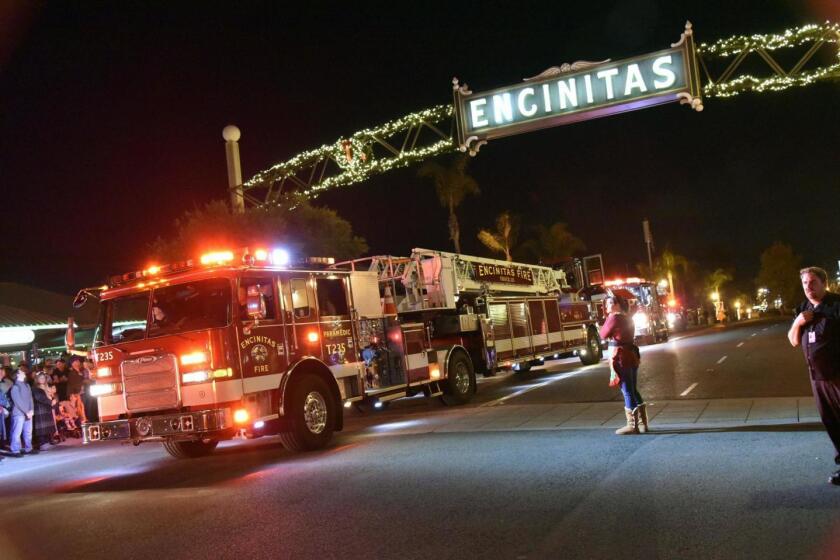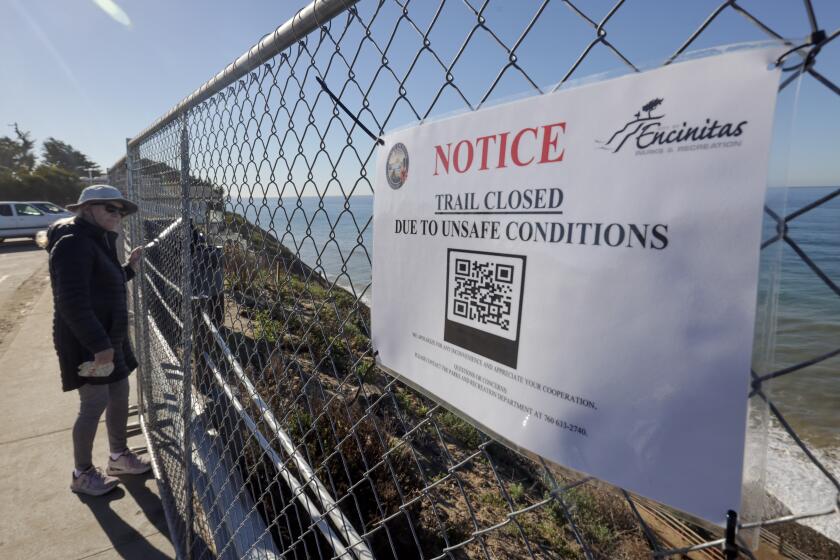Judge may soon order Encinitas to comply with state housing law
A Superior Court judge indicated Tuesday that he will likely order Encinitas to start complying with the demands of two housing-related lawsuits at the end of the month, saying that the city appears to be unable to resolve the situation on its own through the ballot box.
“I’m not making a recommendation (today) that an impasse has occurred, but I think you can see where the court is going,” Judge Ronald Frazier told the city’s attorneys, and he recommended the various parties involved in the lawsuits consider mediating their conflict.
Frazier added that he couldn’t order the city and the two groups suing it -- the Building Industry Association of San Diego and the housing advocacy group San Diego Tenants United -- to obtain the services of a mediator, but said it would be the prudent thing to do.
In a statement issued after the hearing, Mayor Catherine Blakespear said she wasn’t sure mediation was really an option for the city, given the key issue at stake is whether the city must win voter approval for a state-mandated, housing planning document.
“I don’t see how the city could mediate over the citizen’s right to vote,” given that this right was established by a citizens’ initiative that voters approved in 2013, Blakespear wrote.
Encinitas is one of only a handful of cities in the state that are out of compliance with a state law, which requires cities to have certified Housing Element plans. Those plans spell out how cities propose to accommodate their future housing needs, particularly the needs of low-income residents.
The city has tried twice to win city voter approval for a housing plan. Two years ago, voters rejected the city-sponsored Measure T plan. The latest proposal -- the Measure U plan ---appears to have been turned down by voters in the Nov. 6 election.
Unofficial results show that 52.91 percent of the city’s voters opposed the new plan, which would have up-zoned 15 privately owned parcels so their owners could build housing that exceeds current city height limits and building densities.
During Tuesday morning’s court hearing, Frazier said he didn’t think it was at all likely that the votes remaining to be counted would change the outcome. But he said he would wait to issue his decision until the county finishes counting any outstanding ballots and certifies the election results. He scheduled a new court hearing for 1:30 p.m. on Nov. 28.
The attorneys for the tenants’ group and the BIA told Frazier they hope his ruling will require the city to comply with state law within 120 days, or four months. However, they didn’t agree on what punishment the court ought to wield to get the job done.
The lawyer for the Tenants United group, Parisa Ijadi-Maghsoodi, said her clients wanted an injunction preventing the city from issuing any building permits, except ones for low-income projects, until the housing planning situation is resolved.
Given the city’s longstanding lack of compliance with state law, “this is not an extreme” request, she said.
Timothy Hutter, the BIA’s attorney, said his clients wanted the city to be forced to comply with state housing law, but would not support the building moratorium proposal.
It was also opposed by the city’s attorneys, who said it would embolden opponents of the housing plan.



